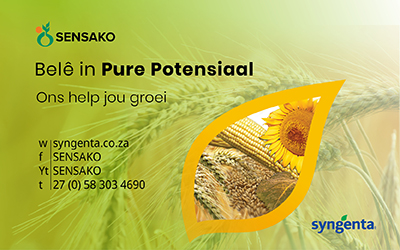If you are a producer or working on a farm, you probably have many things on your mind all year round. As you juggle time between managing people, land, unpredictable weather and other demands, it is easy to forget to look after your own physical and mental health. Remember, though, that when you look after yourself, you look after your farm as well. Here are some ideas to keep you in top condition both physically and mentally.
Medical check-ups
Producers, like anyone else, should undergo routine medical check-ups to monitor their overall health to protect themselves and address any potential issues early. Take note of the following:
- A general physical exam will check your vital signs, overall physical condition, and any noticeable abnormalities. Your healthcare provider will then also have the opportunity to assess risk factors and address unhealthy lifestyle habits.
- Visit your doctor or healthcare provider annually to get your blood pressure checked. Monitoring your blood pressure can help identify hypertension or other cardiovascular issues.
- Blood tests can include a complete blood count (CBC), testing your cholesterol levels and determining blood sugar levels. It is advisable to test your cholesterol levels at least yearly, especially from the age of 30 and also if you have a high risk for cardiovascular disease. A blood glucose test screens for type 2 diabetes. Risk factors for type 2 diabetes include being overweight or obese, having high blood pressure, high cholesterol, and a family history of heart disease or diabetes. A thyroid test can identify an under- or overactive thyroid.
- As farming is often a physically demanding work, it is important to get a musculoskeletal evaluation. Bone mineral testing and assessing joint health and muscle strength may also be beneficial.
- Since producers are often exposed to the outside elements, skin examinations are important as regular skin checks help catch any abnormalities. Track problematic moles for early detection of skin cancer. Depending on your age and risk factors, your doctor may advise screenings for specific cancers (for example colon, breast, prostate and lung cancer).
- Depending on the particular type of farming, there may be extra checks related to exposure to pesticides, chemicals, or zoonotic diseases. Respiratory function tests are especially important if the producer is exposed to chemicals or other respiratory hazards.
- Regular checks for vision and hearing problems are important for overall well-being. This includes screens for vision issues, glaucoma and macular degeneration.
- A dental check-up and cleaning are important, as dental issues can affect overall health.
- Check with your doctor to make sure all your immunisations and vaccinations are current.
- It is important for producers to communicate openly with their healthcare provider about their specific work, environment, and any concerns they may have. This allows for tailored health recommendations.
Farming can be physically and mentally demanding and stressful. It is important to acknowledge and address these challenges to support both the physical and mental well-being of producers in South Africa.
Mental wellness
The CDC (Centers for Disease Control and Prevention) defines mental health as ‘an important part of overall health and well-being. Mental health includes our emotional, psychological, and social well-being. It affects how we think, feel, and act. It also helps determine how we handle stress, relate to others, and make healthy choices.’
Over the past few years, producers have experienced significant stressors that have impacted negatively on their mental health, including:
- Falling commodity prices, increasing levels of farm debt and other cash flow problems.
- Natural disasters such as field fires that have harmed crop yields and reduced herds and flocks.
- Unpredictable weather conditions like drought and hail.
- Labour shortages and employment issues.
- Trade disputes.
- Extensive working hours and fatigue.
- Health and safety of families and employees.
- Conflict with employees or family members.
These challenges can contribute to higher rates of stress, mental illness, and suicide in farm families. Producers need to understand that mental health is just as important as physical health. Healthcare providers can also provide information for producers and their employees on the behavioural and physical signs of stress and how to respond.
Helpful technology
In recent times, information about health has been widely available (even if you are living on a remote farm), and you can use technology to improve your mental health. Whilst spending long hours on your tractor, why not listen to podcasts such as TransFARMation? It features producers speaking about farm stress through personal stories and conversations with experts. Information resources to help support the mental health of producers can be found on various websites (search for Zenzile Life and Farm State of Mind).
Online apps such as Hey Happy or The Smiling Mind app is intended to improve a positive mind-set. For online therapy visit websites such as www.headroom.co.za. Speak to your local GP or mental health professional if you are concerned about your mental health or that of your loved ones. Additionally, access resources such as the South African Depression and Anxiety Group (SADAG) on www.sadag.org or 0800 21 22 23 or find AfriForum’s trauma unit at afriforum.co.za.
This article is for informational and educational purposes only and should not be considered therapy or any form of treatment. We are not able to respond to specific questions or comments about personal situations, appropriate diagnosis or treatment, or otherwise provide any clinical opinions. If you think you need immediate assistance, call your local doctor/psychologist or psychiatrist or the SADAG Mental Health Line on 011 234 4837. If necessary, please phone the Suicide Crisis Line on 0800 567 567 or SMS 31393.



















